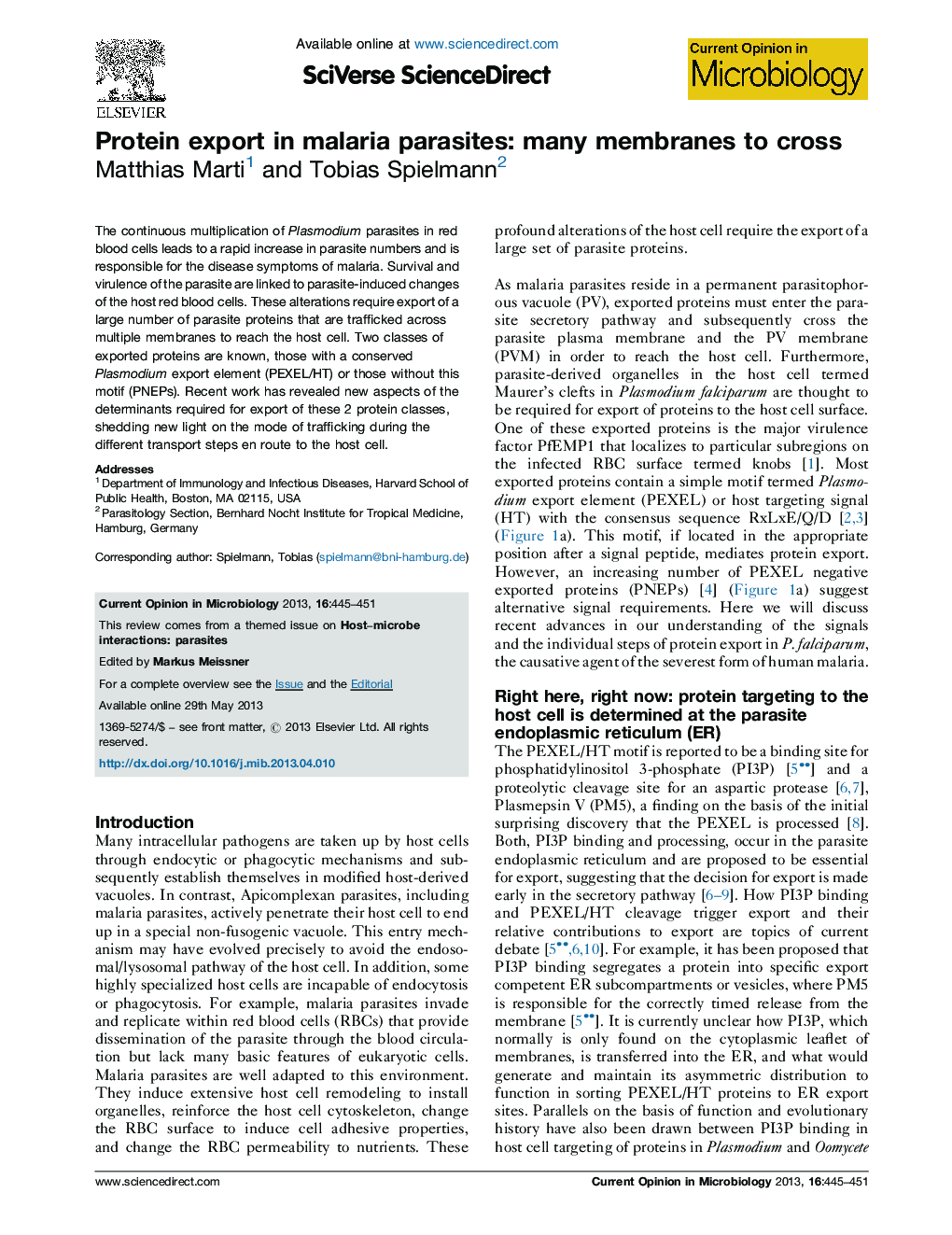| Article ID | Journal | Published Year | Pages | File Type |
|---|---|---|---|---|
| 6132245 | Current Opinion in Microbiology | 2013 | 7 Pages |
Abstract
The continuous multiplication of Plasmodium parasites in red blood cells leads to a rapid increase in parasite numbers and is responsible for the disease symptoms of malaria. Survival and virulence of the parasite are linked to parasite-induced changes of the host red blood cells. These alterations require export of a large number of parasite proteins that are trafficked across multiple membranes to reach the host cell. Two classes of exported proteins are known, those with a conserved Plasmodium export element (PEXEL/HT) or those without this motif (PNEPs). Recent work has revealed new aspects of the determinants required for export of these 2 protein classes, shedding new light on the mode of trafficking during the different transport steps en route to the host cell.
Related Topics
Life Sciences
Immunology and Microbiology
Microbiology
Authors
Matthias Marti, Tobias Spielmann,
